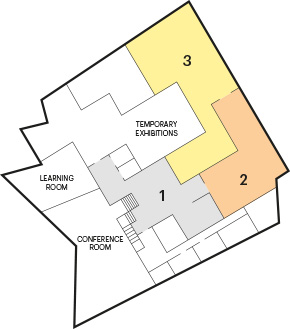If you are at the museum, use this menu to get information about the works, follow itineraires or access to "My Mev"
- Search by number
-
Itineraries
- My Mev
Visits
With children
Before making the visit, we recommend that you take into account the time available and the different itineraries that we propose and that, according to your interests, choose between the offer of guided tours, activities and exhibitions. Choose your tour with the available apps or the mobile web.
Collection
- All
- Archaeology
- Lapidary
- Romanesque
- Gothic
- Renaissance
- Textiles and clothing
- Glass
- Leather
- Furniture
- Gold and silver work
- Forge work
- Ceramics
- Coins and medals
Itineraries
A magnificent collection of Catalan Romanesque and Gothic painting and sculpture masterpieces, along with outstanding collections of archaeology, goldsmithing, weaving, wrought iron, glass and ceramics. A fund of exceptional value made up of more than 29,000 pieces.
No matter who you are or how old you are, there are many ways to discover what our ancestors were like, what they did, how they lived and what they thought, you can do it online or also in the Museum, where various participatory proposals await you to travel to the past with a vision of present.




